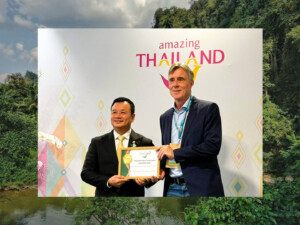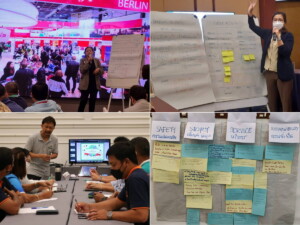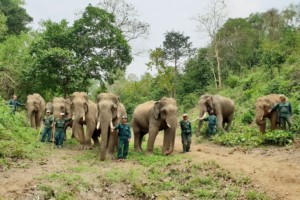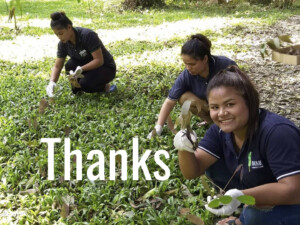The PR challenge of opening Thailand safely to inbound travel & tourism

The COVID-induced travel & tourism depression has hit Thailand hard. Ranked eighth in terms of international visitor arrivals in 2019, Thailand is the poorest of the destinations in the top 10. It is no wonder then that an industry-led public relations campaign advocating for a safe reopening has emerged: #OpenThailandSafely. Heading up its messaging and media relations is Ken Scott who lets us in on some of the challenges in that. It’s a “Good Tourism” Insight.
On March 2, 15 major inbound Thai tourism companies launched the #OpenThailandSafely campaign. The objective was, and is, to urge Thailand’s leaders to open the country’s borders to tourism from July 1, 2021.
After a year of de facto closed borders, the economic impact on Thailand has been brutal. Every travel company in the country dependent on international tourism has had to lay off staff. The negative economic, social, and psychological impact on around 4 million unemployed Thai people has been massive.
Sadly, there is a whole ocean of ill health, debt, family discord, and denial of life lurking just under the cold statistics.
However, the game changer over the last few weeks has been the relatively successful rollout of COVID-19 vaccinations in the UK, USA, Israel, and other countries. The campaign is therefore proposing that travellers who have had official COVID vaccinations should be allowed to visit Thailand from July 1.
If the Thai authorities want to stipulate the need for COVID tests before travelling or on arrival, the campaign is fine with that. #OpenThailandSafely is also relaxed about any other reasonable stipulations that Thai authorities may have. Except quarantine.
Quarantine — whether it is 14, 10, or 7 days — is a massive deterrent to any meaningful revival of large-scale tourism, as the failed experiment with Thailand’s Special Tourist Visa last year showed us.
Therefore, no quarantine for vaccinated travellers is the only sensible way forward. Otherwise, tourists will simply go to a growing list of other destinations.
Also see Gabby Walters’ “GT” Insight
“How travellers respond to crises and disasters …”
Why July 1?
Open Thailand Safely believes July 1 is an appropriate date to open borders. Restarting tourism is not like flicking on a light switch. It takes time for airlines, tour operators, and hotels to prepare, not least by rehiring and training people.
Tourists also need time to plan and book ahead.
July 1 also gives time to Thai medical authorities to vaccinate both front line staff in hospitality settings and/or vulnerable citizens around the country.
These founding principles of the campaign were created and solidified quickly after a series of phone calls and emails between senior executives at YAANA Ventures, Asian Trails, and Minor Group, all big tourism inbound companies in Thailand.
Did you know? “Good Tourism” Partners Anurak Community Lodge, Cardamom Tented Camp, and Khiri Travel are all YAANA Ventures projects.
One of the discussion points was whether to push for a specific opening date or not. An early date wouldn’t give tourists, the travel industry, and Thai government agencies time to prepare. The third quarter of the year, from July 1, is typically not the busiest so the date gives Thailand time to iron out issues before October, the start of the high season.
Meanwhile, a later date would prolong the socio-economic suffering unnecessarily. So July 1 emerged as a good compromise. It would also give tourists in northern hemisphere countries the option to book a summer holiday in Thailand.
The caveat to this timeline was, and is, the successful rollout of vaccinations in source markets. There also needs to be international agreement around what constitutes proof of vaccination, the so-called ‘passport’.
Realities, sensitivities, support
These points are a crucial part of our campaign messaging. Balancing the operational realities of tourism with political and public health sensitivities is central to our communications challenge.
Along with my ScottAsia Communications colleague Anchalee in Bangkok, I have been the PR and media relations lead for the campaign. We’ve been working hand in glove with Willem Niemeijer and Chris Kittishinnakuppe of YAANA Ventures, the prime movers for the campaign in Thailand, along with the most senior executives at Asian Trails and the Minor Group, supported by Skal International Bangkok and Thailand.
Did you know? The author of this “GT” Insight, Ken Scott, is also a co-founder of “GT” Partner Worldwide Travel Alliance.
The campaign’s supporting companies — 40 of them and rising — want to go on record because the current state of affairs is unsustainable. The tourism industry is crying for help. So are millions of ordinary low income Thais, now relegated to virtually no income in a country that doesn’t have the deep social welfare pockets or furlough capabilities of Australia, Europe, or North America.
OpenThailandSafely is now giving voice to a sector of Thailand’s economy that has been cast out in the cold.
As I write, well over 10,000 signatures of support have been registered on the campaign’s website OpenThailandSafely.org, which is in both English and Thai languages.
International global media have responded favourably. In fact I’ve been blown away. There’s been coverage on four continents on TV, print, online, in trade and consumer outlets. Look at #OpenThailandSafely on Twitter and you’ll get a snap shot.
Thais have also been inspired by our initiative. Some of them are now creating YouTube videos dedicated to the campaign. The real positive kicker from my point of view as a PR guy are the many supportive comments by Thais who are arguing that reopening is overdue, that the economic downsides outweigh the public health threat.
The initiative has reminded us that people all round the world love Thailand. And that Thais formerly dependent on tourism want to get back to productive employment.
Also see Carol Chaplin’s “GT” Insight
“Overtourism to no tourism and back: What is Lake Tahoe’s ‘new normal’?”
Judgement calls
However, nothing is easy. There are sensitive judgement calls behind the decision to launch a campaign like this. Here are four:
1. Economics vs public health
Everyone in their right mind is for public safety and wellbeing. Sure, but at what cost — cost in the broadest sense? Officially, Thailand has had 80 COVID fatalities. For context, impoverished Laos and Cambodia have both had zero, Vietnam 35.
Now, are these amazingly low numbers due to first-rate COVID containment by authorities? Or could it be that COVID-19 is widespread across Southeast Asia, but that for biological, environmental, or other reasons it doesn’t exact a negative health impact?
Which leads to the implicit assumption of the campaign: we have to learn to live with a measure of COVID. And socio-economic sacrifices need to be proportionate to the public health threat.
We shouldn’t, I believe, continue to inflict seemingly unending harm on healthy people because of a disease that has killed 0.00000121% of the population in Thailand and has a survival rate of over 99% among those that catch it. Compare that to 23,000 road traffic fatalities and 60,000 heart disease deaths a year in Thailand.
However, such statistics don’t deter some voices on Twitter. They allege that any person seeking to open the country — indeed any country — before everyone has been vaccinated would have ‘blood on their hands’.
Sigh.
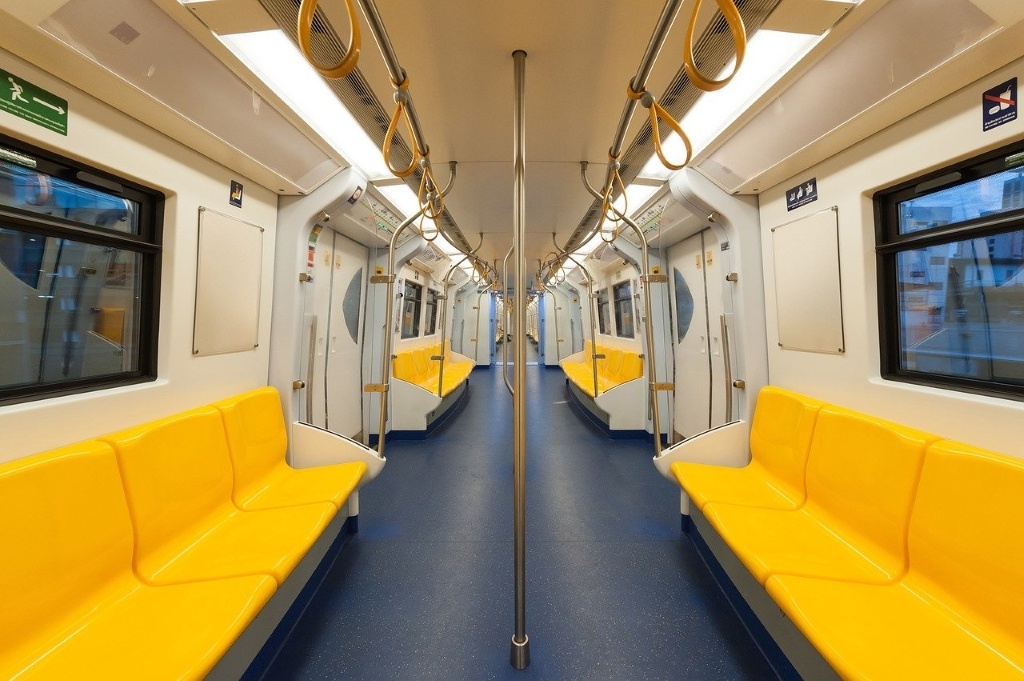
2. Vaccination passport ethics
Stipulating that travel should only be available for those with a “vaccine passport” is a slippery slope. The world formerly had yellow fever inoculation passports. We accepted it as a necessary condition of travel to certain countries. It didn’t infringe civil liberties.
Open Thailand Safely is not advocating long-term use of vaccine passports. We are simply saying that they are a practical one-off solution to a unique public health and tourism economy crisis.
3. Culture & politics
This is also sensitive for many reasons. First, Thais are grengjai. This means they don’t like to criticise. They don’t want to cause offence. They like to be considerate. Accordingly — occasional outbursts of political protest notwithstanding — they are reluctant to go public with dissent.
Furthermore, Thailand has a military government.
Also, it seems to me that many people around the world have been cowed into a state of disproportionate fear regarding COVID.
The result is that people in the tourism sector in Thailand have had to hunker down and ride out the storm in the belief that the situation would ease ‘soon’. But it didn’t — despite the static fatality numbers.
Then the vaccines came along.
4. The role of expats
A further complicating factor is that many of the big Thai companies engaged in tourism have foreign bosses. This is, perhaps, inevitable given that the travel industry is a meeting of cultures, of host and guest, of foreign investment and local expertise.
The result was that in the early stages of the campaign there were one or two comments online that the initiative was being driven by expats, not Thais. For all the above reasons, that was perhaps so.
Thankfully, any new perusal of the campaign’s company sponsor list and the petition signatories combined shows that Thais are now in the majority in the OpenThailandSafely campaign.
And that is how it should be.
Next steps
The campaign is now in contact with assorted travel associations and representative bodies in Thailand. Formal letters will also soon be sent to the Thai Prime Minister, the Minister of Tourism and Sport, and the Governor of the Tourism Authority of Thailand.
If you agree with the goals of the #OpenThailandSafely campaign, please sign the open public petition at OpenThailandSafely.org.
What do you think? Share a short anecdote or comment below. Or write a deeper “GT” Insight. The “Good Tourism” Blog welcomes diversity of opinion and perspective about travel & tourism because travel & tourism is everyone’s business.
Featured image (top of post): The smiling eyes of a Bangkok taxi driver. Image by David Gillbanks (CC BY 4.0).
About the author

Ken Scott lived in Thailand for 28 years working as a travel journalist. He became manager then managing director of communications at the Pacific Asia Travel Association HQ in Bangkok. He set up ScottAsia Communications, a travel industry communications firm, in 2006. Now based in the UK, with an office in Bangkok, Ken continues to serve a variety of travel industry clients, most with an Asia Pacific connection. Ken is also a co-founder of “GT” Partner Worldwide Travel Alliance.


